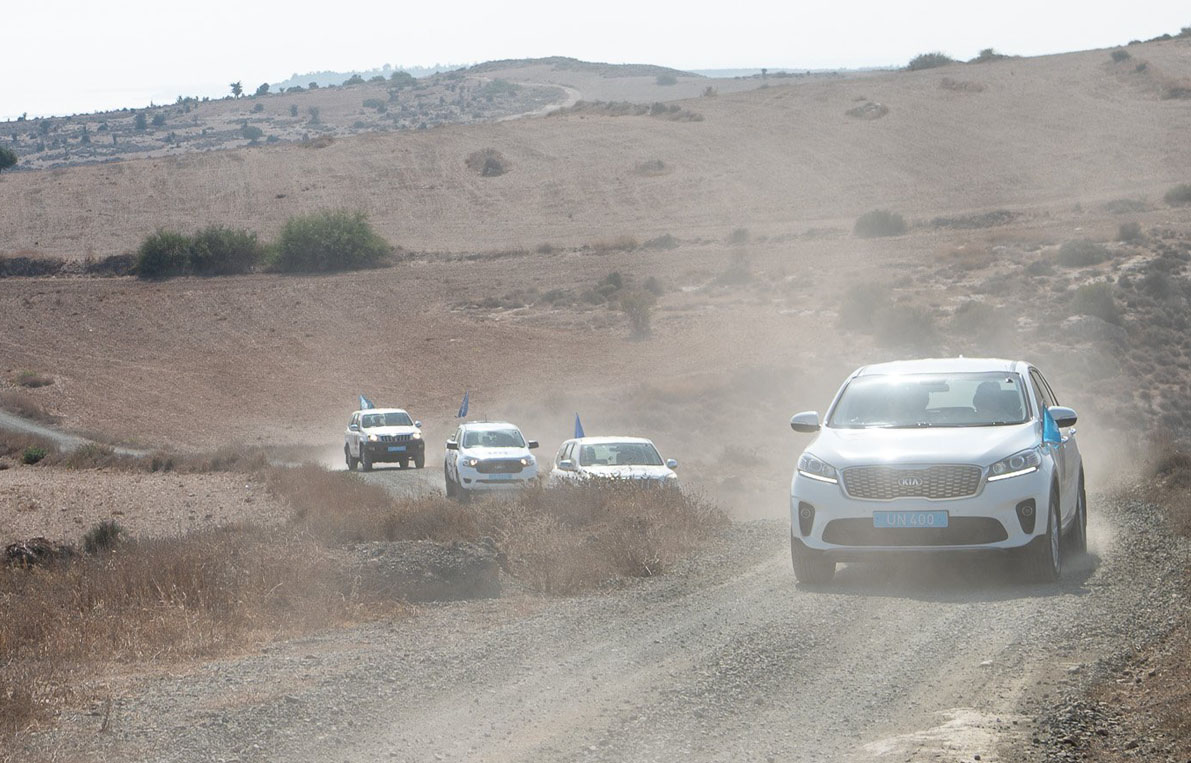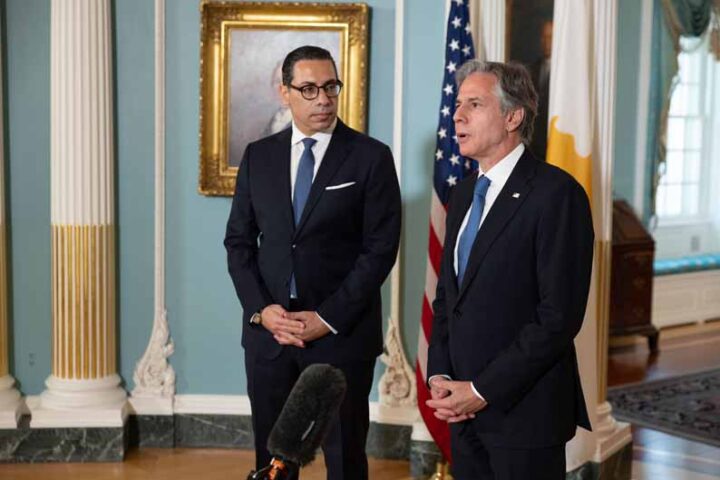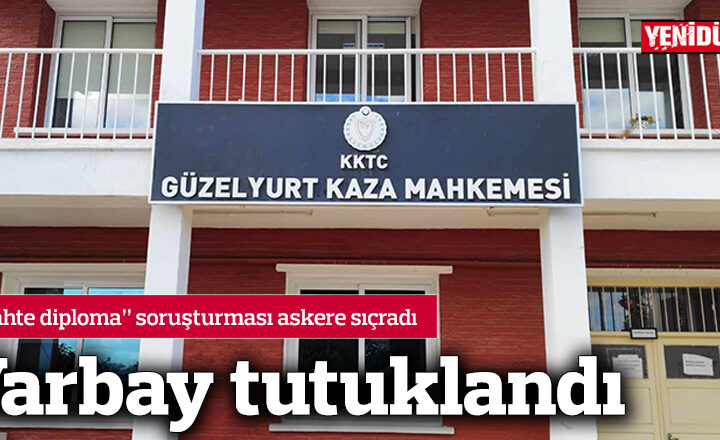The Turkish army is escalating tensions along the buffer zone by constructing fortifications and defensive structures near Deryneia, Famagusta, at time when the UN is expected send a new envoy to Cyprus.
The latest provocation follows recent incursions in Agios Dhometios and Pyla, prompting the government to express its concerns once again to the UN peacekeeping force in Cyprus (Unficyp).
Mayor Andros Karagiannis of Deryneia reported the incident, emphasising the deep concern among residents about the Turkish military’s actions.
In response to the mayor’s statements, Government Spokesperson Konstantinos Letymbiotis clarified that Turkish activities in the region are taking place outside the designated buffer zone.
“However, there is a palpable unease on the Greek Cypriot side, with relevant authorities closely monitoring the situation,” according to Letymbiotis.
Analysts suggest that this latest incident indicates Turkey’s clear intention to heighten tension, potentially leading to an active crisis on the ground, challenging the status quo of the buffer zone.
Reports allege that various Turkish manoeuvres aim to initiate discussions with the United Nations over the buffer zone’s status, a proposition rejected by Unficyp, responsible for monitoring and patrolling the 180 km demilitarised zone.
In response to a journalist’s observation that the Turkish army does not appear to be withdrawing from the buffer zone in Pyla and Agios Dhometios, the government spokesperson reiterated the expectation for the peacekeeping force to implement its mandate and restore the buffer zone’s status to its previous state.
Meanwhile, the Republic of Cyprus has responded positively to the proposal of the UN Secretary-General for the appointment of an envoy to Cyprus.
Colombian envoy
Secretary-General Antonio Guterres has recommended Maria Ángela Holguín Cuéllar, former Foreign Minister of Colombia, as his envoy for the long-standing Cyprus issue, local media reported earlier this week.
The proposal has been extended to all parties involved in the matter.
Spokesperson Letymbiotis said he hoped for a similarly positive response from the Turkish Cypriot side regarding the appointment, emphasizing the government’s sincere political will and readiness to resume negotiations from where they were interrupted at the UN meeting in Crans Montana in 2017.
“The ultimate goal is to achieve a sustainable and definitive settlement of the Cyprus issue, as we maintain the desire for a solution with a bicommunal, bizonal federation with political equality,” he said.
Asked about the duration of the envoy’s stay in Cyprus, Letymbiotis emphasised the importance of a prompt appointment to initiate contacts for the potential resumption of negotiations.
“We hope for sincere political will, and we trust that the testing period will not be prolonged, allowing negotiations to resume as soon as possible,” stated Letymbiotis.
The Turkish Cypriot side responded positively to the appointment of the UN envoy, but insists on a two-state solution, as indicated by statements from the head of the north’s Foreign Affairs office, Tahsin Ertugruloglu.
In comments to an online podcast by the news outlet Kibris Postasi, Ertugruloglu said that the Turkish Cypriot side consents to the envoy’s appointment “on the precondition that common ground for a federation would not be sought.”
“The position of the Turkish Cypriot side is to explore common ground based on the concept of two states,” he said.









